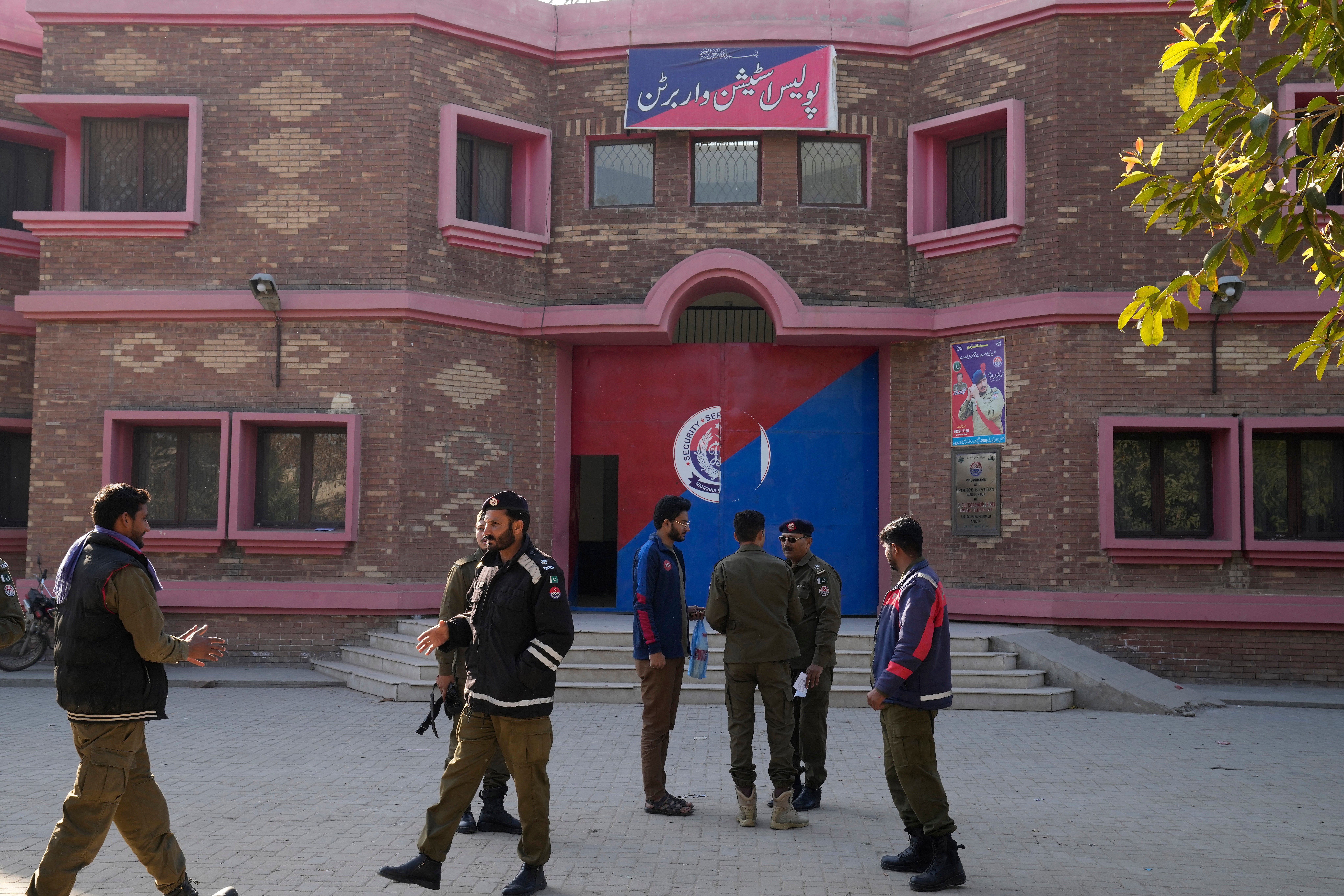Man sentenced to death in Pakistan over ‘blasphemous’ WhatsApp post
Earlier this year, Pakistan tightened its strict blasphemy laws

Your support helps us to tell the story
From reproductive rights to climate change to Big Tech, The Independent is on the ground when the story is developing. Whether it's investigating the financials of Elon Musk's pro-Trump PAC or producing our latest documentary, 'The A Word', which shines a light on the American women fighting for reproductive rights, we know how important it is to parse out the facts from the messaging.
At such a critical moment in US history, we need reporters on the ground. Your donation allows us to keep sending journalists to speak to both sides of the story.
The Independent is trusted by Americans across the entire political spectrum. And unlike many other quality news outlets, we choose not to lock Americans out of our reporting and analysis with paywalls. We believe quality journalism should be available to everyone, paid for by those who can afford it.
Your support makes all the difference.An anti-terrorism court in Pakistan sentenced a man to death after he was found guilty of posting “blasphemous” content in a WhatsApp group.
On Friday, the court in Peshawar in northwest Pakistan sentenced Syed Muhammad Zeeshan — under the country’s Prevention of Electronic Crimes Act and Anti-Terrorist Act — to death and also fined him $4300.
The court order read: “Accused Syed Muhammad Zeeshan, son of Syed Zakaullah in custody has been convicted and sentenced after being found guilty.”
Blasphemy remains a touchy subject in Pakistan.
In January this year, the country further tightened its strict blasphemy laws by extending the punishment to those who are convicted for insulting religious figures connected to the prophet Muhammad.
The Pakistan National Assembly unanimously passed the Criminal Laws (Amendment) Bill which not only widened the ambit of the law but increased punishment and fines for those convicted under it.
The move raised concerns among human rights activists and observers who said it will increase the prospect of persecution for some, especially religious minorities like Hindus and Christians.
In February, Pakistan’s police arrested at least 50 suspects in the kidnapping and lynching of a man already detained on charges of blasphemy.
A mob of hundreds of enraged Muslims descended on the police station in the Nankana district of eastern Punjab province and dragged the man out of the prison and killed him.
The man, in his twenties, was reportedly in police custody for desecrating the Quran, the Muslim holy book, according to police spokesperson Muhammad Waqas.
Mr Waqas said at the time. “Police could not resist them because a handful of officials were present in the police station.”
Meanwhile, on Friday, the court also handed a sentence of 23 years imprisonment to Zeeshan — who has the right to appeal.
The case of “blasphemy” came under scrutiny when Muhammad Saeed, a resident of Talagang in Punjab province filed an application with the Federal Investigation Agency [FIA] of Pakistan two years ago accusing Zeeshan of posting blasphemous content in a WhatsApp group.
Mr Saeed’s lawyer, Ibrar Hussain was quoted as saying by news media that “the FIA had confiscated Zeeshan’s cellphone and its forensic examination proved him guilty”.
In the last 20 years, 774 Muslims and 760 members of various minority religious groups in Pakistan have been accused of blasphemy, according to a human rights group National Commission of Justice and Peace in Pakistan.
According to the Centre for Research and Security Studies (CRSS), at least 89 citizens – 18 women and 71 men – have been the subjects of extra-judicial killings over blasphemy accusations since the country was formed in 1947.
Join our commenting forum
Join thought-provoking conversations, follow other Independent readers and see their replies
Comments